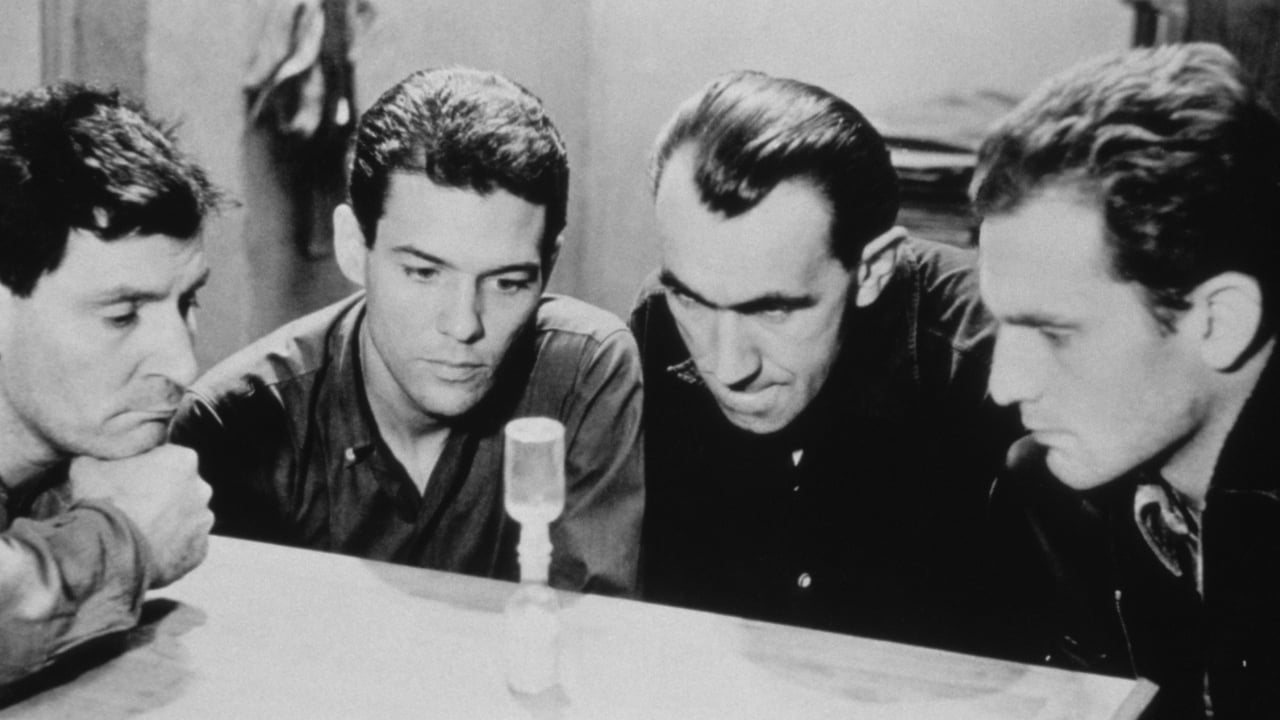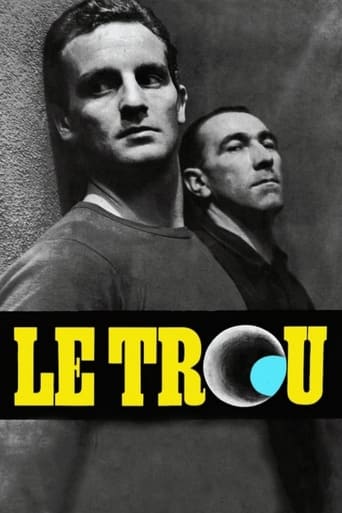

This film is absolutely exceptional, from all points of view: story, actors, director, cinematography, everything. If you like movies with action in prisons, this is the best of all. And the most realistic (the script is inspired by a true story). Although static, because all the action is taking place in a prison cell, the film has great tension and is watching with the soul to the mouth. Michel Constantin and Philippe Leroy in their best roles. Great, great film!
... View MoreWithout a doubt, the authenticity of this film lies in the fact that the director chose to use real players of the actual event. Needless to say, this is a very well crafted piece of art, and as another reviewer put it: "The God is in the details". The acting is not top-notch, but this weakness simply exposes the real genius of the director. The situation itself overshadows all the individual players, and that's what the audience is compelled to focus on.Thank you and RIP Jacques Becker!!!
... View MoreWatching this film was a heart stopping experience in more ways than one. While the film was thrilling, the DVD threatened to get stuck and stop working any moment. In fact, it got stuck numerous times but resumed playing again.BECKER and DASSIN did make some unbelievably thrilling and devastating films. The attention to detail of the prison break in this film is just out of this world. There is hardly a dull moment. The prisoners are up against it all the time. It is just one event after the other before the heartbreaking finale.PHILLIPE LEROY and JEAN KERAUDY (surprisingly acted only in one film) must be two of the toughest leading men to ever appear on screen. These guys were MADE for their roles. They are so perfect. The way they slip in and out of various holes is amazing. I wonder if they underwent some sort of physical training for this film.According to some posters on the forum, the basic message of the film is to never trust the bourgeois.Anyway, LE TROU is probably the best prison break movie that I have watched in my life time. It surpasses PAPPILON and THE GREAT ESCAPE in its attention to detail and depiction of male bonding.(9/10)
... View MoreA unique prison escape film, full of very specific, realistic details and devoid of almost any prison movie clichés. The characters all prove more complex then we assume at first glance. Perhaps that's because it's based on a true story. In fact the cast are all non-pros, and one was actually involved in the real escape plan. I was lukewarm while I watched the body of the film, but by the end it had an emotional and intellectual effect far more powerful than I expected. There were a couple of illogical moments that made me wonder if the real story was being followed honestly. But, ultimately that didn't really matter. Whatever the blend of truth and fiction this is a tense, powerful, entertaining film, one of the better prison films ever made.
... View More